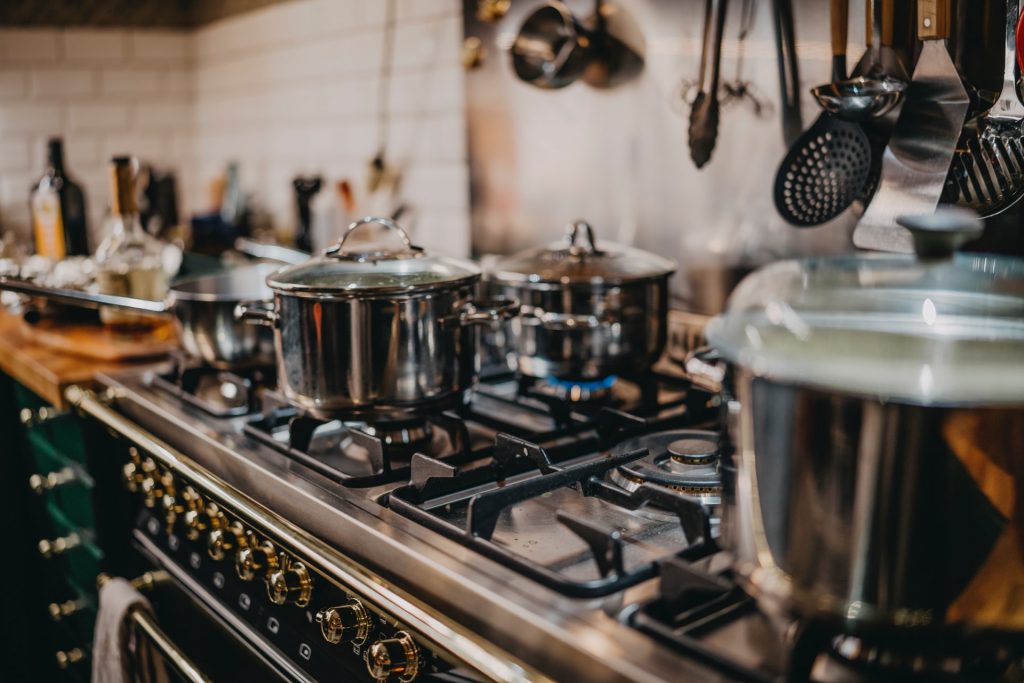Gas stoves have been one of the most popular cooking options for decades, if you have made the same decision, you should read up this list of 5 things to know about using a gas stove!
Many professional kitchens still choose these kinds of stoves because of their heat capability, power and sturdiness, there are also a good investment for any home.
They work with natural gas or propane
These types of stoves world with two kinds of gases: natural or propane. Your home could be adapted to receive it or you can get it independently.
This is pretty basic but important information to keep in mind, while most ranges can work with the two options or will offer a conversion adapter to make it work, it will serve you well to remember in case of repairs or refills.
Gas can also be a cheaper alternative for those looking to save more while cooking!
Gas has a particular smell
All gas supplies come with an added sent so that the user can easily identify it and shut it off.
For new gas stove, users its is important to learn to recognize this smell, keep the gas stove away from the reach of kids and be mindful of the safety precautions, you can also get a gas detection system for extra safety.
You’ll get more heat, faster
A big one to remember when cooking, whatever you put on the flame of a gas stove will get hot fast, way faster than electric stoves.
Gas stoves are more direct because the heat is coming from the flame, while electric stoves have to heat the burners before moving on to whatever is in contact with them.
It makes sense that big kitchens go for gas stoves, and maybe if you are an avid chef or cook a lot, this can also be the best choice for you.
Extra knowledge
When the stove is off so is the heat, no residual heat to keep things warm or cooking if you shut off the gas.
Always be aware of the flame
Not only does it heat things faster than an electric store it can also be more dangerous. With other kinds of stoves, a misplaced item can take a while to burn.
Create an organized kitchen space so you don’t put anything near the flame that doesn’t have to be there, leaving you free to enjoy your cooking.
Keep it clean
Cooking can mean spills, splatter and more, but for the sake of your stove and your safety ist best to keep it as clean as possible.
Here’s the thing any residue left near the flame of the stove could catch fire and become a hazard for your home.
For all your gas stove repair or installation needs, you can call Maydone!


